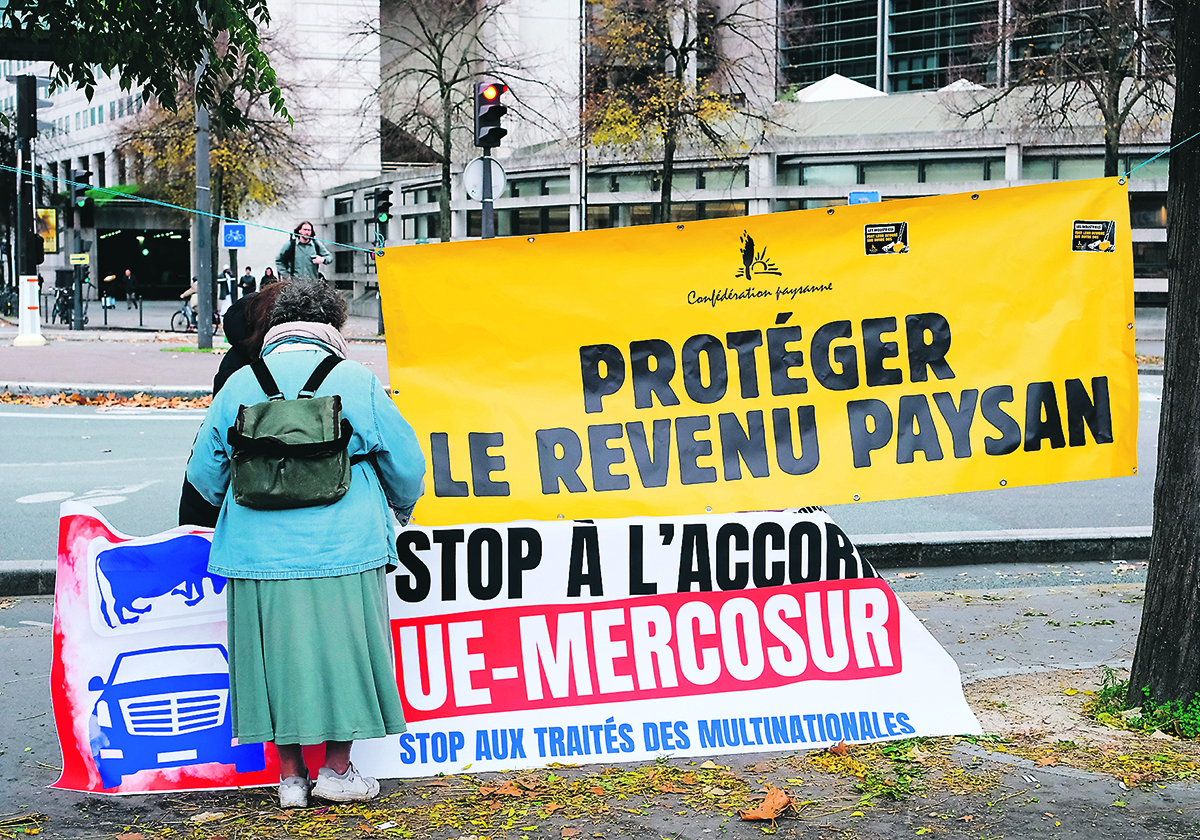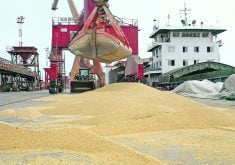The agreement between the European Union and the Mercosur bloc is fiercely opposed by some EU countries and farmers
MONTEVIDEO/BRUSSELS, (Reuters) — The European Union and South America’s Mercosur bloc struck an agreement on a long-delayed free trade deal earlier this month.
However, it now faces a tortuous battle for approval in Europe, where there is stiff opposition from France.
After negotiations spanning over 20 years, and five years on from an initial deal, European Commission president Ursula von der Leyen and her Mercosur counterparts announced an agreement had been reached in the Uruguayan capital Montevideo.
Read Also

Why feds imposed EV tariffs
Moe and Kinew have a fight on their hands when it comes to eliminating the EV tariff. Canada has to worry about pissing off the U.S. and Mexico and hundreds of thousands of auto workers.
“This is a win-win agreement,” von der Leyen said in a news conference in Montevideo alongside the presidents of the main Mercosur nations, including Argentina and Brazil.
“This agreement is not just an economic opportunity, it is a political necessity,” she added.
“I know that strong winds are coming in the opposite direction, towards isolation and fragmentation, but this agreement is our near response.”
France, the most vociferous critic of the deal in the EU, has branded it as “unacceptable.” Underscoring the obstacles it now faces, French trade minister Sophie Primas pledged to resist its next stages, citing environmental and farming concerns.
European farmers have repeatedly protested against an EU-Mercosur deal that they say would lead to cheap imports of South American commodities, notably beef, that do not meet the EU’s green and food safety standards.
Italy said there were no conditions for signing off on a deal. Poland said it opposed the free trade deal in its current form.
European green groups also broadly oppose the accord. Friends of the Earth calls it a “climate-wrecking” deal.
Conversely, a group of EU members, including Germany and Spain, say the deal is vital for the bloc as it looks to diversify its trade after the near-closure of the Russian market and discomfort about reliance on China.
They see Mercosur as a market for EU cars, machinery and chemicals and a potentially reliable source of critical minerals, such as battery metal lithium, required for Europe’s green transition.
They also point to agricultural benefits, given the deal offers greater access and lower tariffs for EU cheese, ham and wine.
The trade agreement would require approval from 15 of the 27 EU members representing 65 per cent of the EU population along with a simple majority in the European Parliament.
South American negotiators remain optimistic that the EU will eventually give its approval and that France will not be able to rally a blocking minority.















